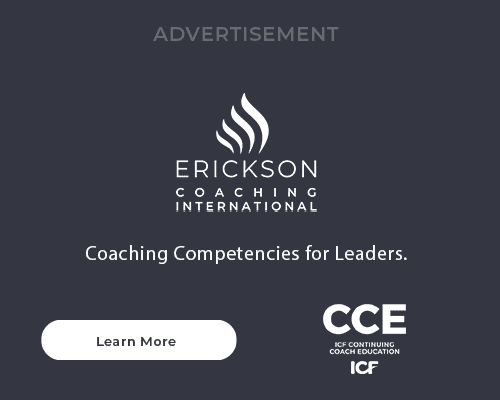Coach, Mentor and Consultant: How to Use All 3 Roles to Serve Your Clients
As a Vistage Chair, I work closely with business executives in peer advisory groups and in one-to-one sessions. Even though they are accomplished leaders and business owners, they are people first. The issues they face affect them personally and professionally. Both facets of their lives are intrinsically tied together. Understanding this informs the way I work with all of my clients and members.
In the two Vistage groups that I facilitate, I work with a total of 30 high-achieving leaders. When I think about what gets in the way of their greatest success, I come up with three obstacles: lack of experience, lack of knowledge and lack of self-awareness (how they are showing up behaviorally). To effectively support these executives, I find myself wearing three hats:
The first is that of a consultant. As a consultant, I tell them what they need to do to solve their issues. This is an immediate fix to help them with challenges they are facing right now, but it often does not have long-lasting value. They aren’t learning how to get to these conclusions by themselves. Consulting certainly has its purpose, but to serve members and clients at the highest level, I use it sparingly.
The second is that of a mentor. As a mentor, I teach and share my experience, so members have deeper insight into the issues and challenges they are facing. This approach helps members refine their thinking and cultivate their instincts over time. Both mentoring and consulting are the main go-tos when there is a knowledge gap.
The third is that of a coach. As a coach, I partner with my members to help them expand their awareness of the issues they are facing, gain clarity about what they want to achieve (future vision), identify the obstacles in their way, and create a strategy to overcome those obstacles. This is what we learn through ICF.
In my coaching role, I do not tell, but rather ask questions that enable others to develop their own path. In my experience, members who create their own visions and strategies are far more likely to implement and sustain them—and get the results they are hoping for.
The biggest challenge is to stay in the true “coaching” role. Even though, you may have many years of business success, stood where your clients are standing, know exactly what needs to be done and how to do it, you must restrain the impulse to tell your clients the answers. The path to becoming an ICF-Credentialed coach gave me the tools to be able to effectively stay in the “coaching” role when my member is best served by coaching.
I have learned that it is not about me, but rather about my client. It’s all about helping them make the most well-informed decisions for themselves (as opposed to doing what I think they should do, of course). Often this means asking questions that inspire clients towards self-reflection—and that’s another distinction between coaching and the other modalities.
When an executive has an honest and objective understanding of who they are, how they lead, what their strengths are, and what personal challenges and struggles may be getting in their way, they have a real opportunity to make significant, long-lasting changes. They have a broadened awareness of how their leadership style and decisions are impacting those around them, as well as their business’s bottom line. For many, this self-inquiry is a real eye-opener and game changer. Effective coaching has a lot to do with emotional intelligence and creating opportunities for increased self-awareness. When we get it right with a client, it leads to powerful self-management and, ultimately, to transformation.
In summary, when working with others, it’s helpful to draw from different approaches including consulting, mentoring and coaching. They each have their place. Making these clear distinctions—and knowing when to put on which hat– has helped me more effectively serve clients and members; maybe it will for you, too.




Thank you so much Charles – very clearly articulated and very helpful.
I agree, it’s about the client’s needs and if we are clear which role we are playing, all 3 are helpful.
Warm regards,
Tana
I completely agree! Very well articulated and helpful!
Excellent article very well written and it was bought clarity to my thought process.
Raj
Dear Charles,
thank you very much for sharing your considerations and experience in the three different roles. Very useful.
I would like to ask you some questions?
How do you understand what role is more effective to play in a specific moment?
Do you follow your intuition or ask the Client?
Do you shift comfortably in the same session (maybe upon prior announcement and/or permission with the Client) or in different development stages of the relationship?
Thank you very much.
Best regards,
Alessandro
Thanks Charles!
I share your background as an Executive Coach, Mentor Coach and OD consultant. I truly appreciate what you have spelled out here and given to others.
I would second all of it! Diane
I am learning about coaching and mentoring, and this article provides exactly what I needed to about the specifics of each activity. Thanks Charles for sharing the digest of what you learned and practiced for years. This is very helpful.
Siaka